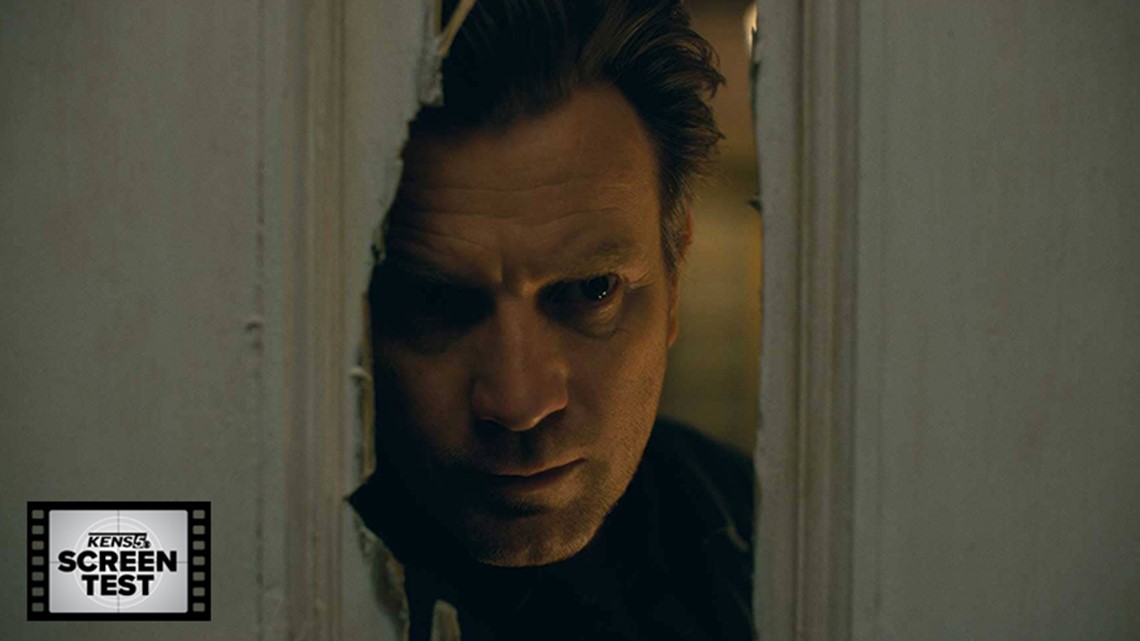Even before considering anything that happens in the actual movie, Mike Flanagan’s “Doctor Sleep” – the latest Stephen King adaptation from the burgeoning horror filmmaker – is a fascinating specimen. It’s obvious why; TV spots have been well-seasoned by audio and visual cues from 1980’s “The Shining” – a genre cornerstone infamously dismissed by Stephen King, beloved by seemingly everybody else and the story which “Doctor Sleep” continues – as Flanagan’s film wears its calling card on its sleeve, as well as its dubious nature.
Much like Denis Villeneuve’s “Blade Runner 2049,” the mere existence of “Doctor Sleep” calls into question its intentions and loyalties, even as Disney’s shameless, financially-driven IP-mining goes unquestioned. “Doctor Sleep,” more than any “Avengers” or Joker origin story, begs the question, even if it doesn’t mean to: What responsibility, if any, do movies have to what’s come before? Most of the time, even asking that says more about our belief that stories belong to us – and only us – than the stories themselves. Though, in the case of “Doctor Sleep,” it’s a more nuanced question, thanks to the legacy of “The Shining” that is as robust a mythology as that of the Overlook Hotel itself.
That “Doctor Sleep” would rather all that nonsense not be where the conversation about it starts speaks volumes. With varying degrees of expectation on its shoulders, Flanagan’s movie is an often-riveting, deeply contemplative genre offering almost completely of its own creation, expanding the (admittedly scant) lore of “The Shining” without leaning on it…too much. Die-hards will probably label it a triumph that the movie doesn’t do anything to renege on what makes Kubrick’s movie so good, but “Doctor Sleep” also exhibits enough devotion to its themes of withholding and confronting trauma that the fact it isn’t all that capital-S Scary doesn’t really matter.
Danny Torrance – Dan – is all grown up, and Ewan McGregor has stepped into his shoes. But he’s not doing so well. Years after the traumatic events of “The Shining,” he is a homeless alcoholic who may have survived the horrors of the Overlook, but the real world is its own Room 237.
Dan arrives in a New Hampshire town, taking advantage of a kind face and an opportunity to get back on his feet – eventually earning his titular nickname by using his shining abilities to help those in hospice be at ease in their final moments – while working to defeat his inner demons. Like father, like son…except son is taking his future into his hands, not murderous intent.
An eventual friendship with the much younger and equally shining-inclined Abra (Kyliegh Curran) is soon established, the pair exchanging messages via the blackboard in Dan’s room like supernatural pen pals. Flanagan’s characterization of the older Dan is a heartbreaking one; his loneliness comes to the fore in these scenes, as does his apparent satisfaction of the stasis that has taken over his life. It’s all well and good, he seems to be thinking, so long as you’re not encountering ghouls in bathtubs.
Watching “Doctor Sleep,” you’re reminded more than a few times about what makes “The Shining” so damn good – the juxtaposition of its cavernous but isolated setting, the obsession with the unexplainable – and it’s largely because Flanagan’s movie takes an antithetical, more expansive and less ambiguous approach in its storytelling. You can’t argue that it’s a horror movie, but the writer-director’s goals are loftier than making your hairs stand on end—like his work on “The Haunting of Hill House” and “Gerald’s Game,” Flanagan has a clear empathy for his characters. The sincerity extends to his story’s parameters, in pure King fashion.
But like his previous projects, Flanagan also has a taste for the strangely horrific. Enter Rebecca Ferguson’s sly, untrustworthy Rose the Hat, the leader of what seems to be a harmfully obtuse gang of Grateful Dead groupie lookalikes—at least until you witness them snatching another child who shines, absorbing the ability as a life essence in one of the film’s more gruesome scenes. This group – which calls itself The Knot – steals and stores the shine for their own uses, primarily for keeping a dream of immortality alive for as long as they can.
If The Knot has other ambitions, Flanagan isn’t much interested in them, and despite Ferguson having the time of her life as a Stephen King villain, the group’s other members don’t serve much purpose beyond delivering threatening glares and ominous threats. If the vagueness is meant to be a part of their evil charm, it doesn’t translate. Jigsaw could scare the panties off these guys.
What does come across in “Doctor Sleep,” however, is its ambitions at being a horror epic. Abra is a particularly strong “shiner,” for reasons that aren’t important beyond making her the No. 1 target for a weakened Knot. In breaking out of his isolation to help her, Dan’s journey takes him cross-country, allowing ample opportunity for “Doctor Sleep” to make liberal use of the blaring horns and wailing atmospherics that makes “The Shining” a sonically sinister film. (Surprise, surprise: The musical motifs stand up four decades later.)


It also allows for an occasional tenderness to rise up in McGregor’s performance, the countenance of someone whose past haunts prevent him from believing he could handle anything like it again. “Doctor Sleep” is a movie whose hair-tingling thrills reside in the land of jump scares and abrasively loud musical milestones that don’t startle you so much as annoy you. But McGregor’s performance is one element proving it has something else to show off—a patient sense of direction from Flanagan, who makes great use of a 150-minute runtime to tell what is – and what feels – like a Shyamalan-esque character-focused story worthy of King, especially in the aftermath of the relatively lethargic “It: Chapter Two.” The filmmaking is the equivalent of slowly stooping to look under your bed in the dead of night, not because you heard a strange noise, but to prove to yourself that you can. Horror is omnipresent; belief is fleeting.
Of course, peeking under the bed for Dan means an inevitable return to the Overlook Hotel, which Flanagan approaches with a reverence. Despite the occasional “Shining” callback that does nothing for the story at this stage, the hotel against feels like a dangerous living beast, even if it's one slowly waking from hibernation.
For the most part, “Doctor Sleep” recognizes that if it indeed does have some responsibility to the works of Kubrick and King, it’s appreciating their virtuosity without leaning on them to round out his story—one that is more intimate, and yet more scattershot. Nothing in “Doctor Sleep” is as memorable as “The Shining,” and the possibility of the story growing into an even bigger *gulp* franchise is scarier than anything in the movie itself. But Flanagan makes the best case he can for something no one thought that 1980 classic ever needed—a faint light to balance its darkness, and a contemplativeness to wash out the blood stains.
"Doctor Sleep" is now playing everywhere, and is rated R for disturbing and violent content, some bloody images, nudity and drug use.
Starring: Ewan McGregor, Rebecca Ferguson, Kyliegh Curran, Cliff Curtis
Directed by Mike Flanagan
2019



